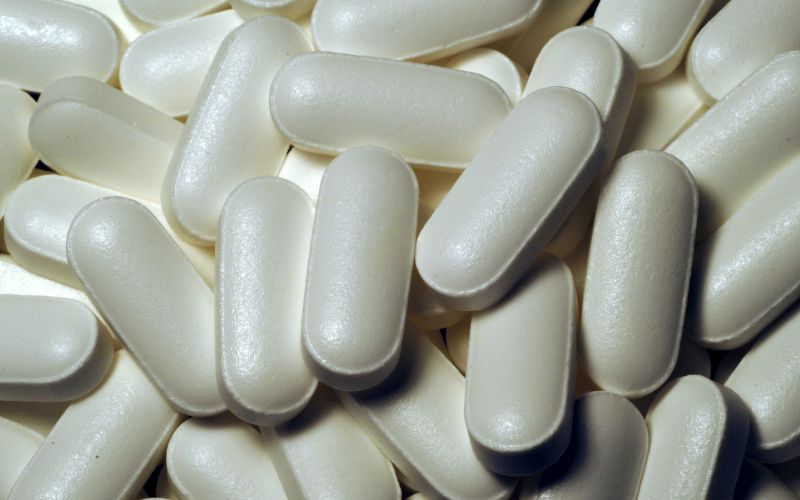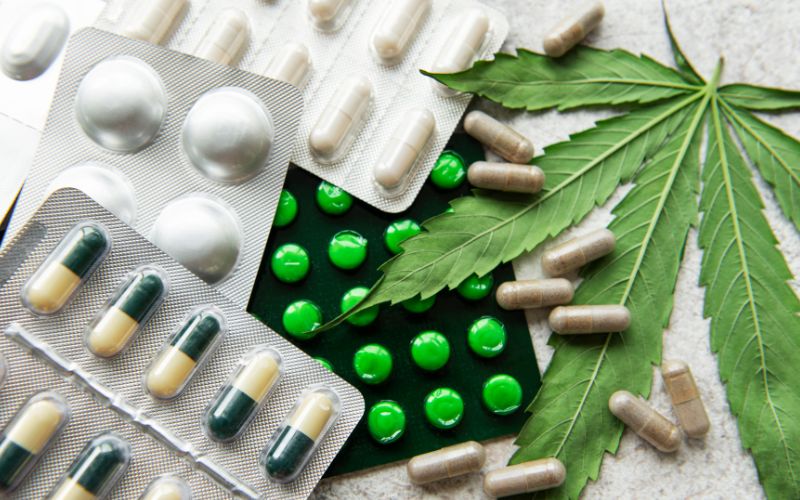Can you mix CBD and Tylenol? That’s a great question. CBD and Tylenol are two popular medications that are often used to treat pain. While they both have benefits, it’s important to understand the potential interactions between them before taking them together. In this blog post, we’ll explore the research on CBD and Tylenol interactions and discuss what you need to know before taking them together.
Please Note: anyone considering taking CBD and Tylenol together speaks with a healthcare professional beforehand.
Before we jump into the research let’s start with some basic information about CBD.
What is CBD?
CBD, or cannabidiol, is a compound found in cannabis that has been shown to have various health benefits. It’s been reported for use in everything from chronic pain relief to cancer symptoms and even anxiety.
There are many misconceptions about CBD oil and the way it works. Some people believe that it gets them high because of its connection with THC, which is actually another cannabinoid found in marijuana plants but that doesn’t have any psychoactive effects.
Others think you can only get CBD by smoking pot or eating weed-laced brownies. The truth is, however, there are several ways to use and consume CBD oil without getting high or consuming marijuana at all!
What You Need to Know Before Taking CBD

CBD oil has become increasingly popular in recent years, as more and more people discover its potential benefits. CBD is a compound found in cannabis that has been shown to have various reported effects, including relief from nervousness, feeling down, chronic pressure or inflammation, and even unwanted cell growth symptoms.
However, there are some things you should know when asking, “Can you mix CBD and Tylenol?” Here are the most important things to keep in mind:
- CBD is not the same as THC.
CBD is a compound found in cannabis, but it does not have the same psychoactive effects as THC. This means that you will not get “high” from taking CBD.
- CBD oil is not regulated by the FDA.
CBD oil is not currently regulated by the FDA, so it’s important to do your research before purchasing any product. Make sure to look for products that are third-party tested and made from organic, non-GMO hemp.
- CBD can interact with other medications.
Before starting CBD therapy, it’s important to talk to your doctor about any medications you’re taking. CBD can interact with other medications, so it’s important to know what to avoid.
- CBD has a few side effects.
While CBD is generally well tolerated and has few side effects, some people may experience mild side effects such as diarrhea, changes in appetite or weight, or fatigue.
- CBD is not addictive.
CBD is not addictive and does not cause withdrawal symptoms.
- You may need to adjust your dosage over time.
You may need to adjust your dosage of CBD over time as your body becomes used to it. Start with a low dose and slowly increase until you find the dose that works best for you.
How does CBD work?
CBD works by interacting with the body’s endocannabinoid system. The endocannabinoid system is a network of receptors that are located throughout the body. These receptors are responsible for regulating various functions, including mood, appetite, pain, and inflammation.
When CBD is consumed, it binds to these receptors and helps to modulate their activity. This can have different effects depending on which function the receptor is responsible for. For example, if you consume CBD to help relieve pain, it will bind to pain receptors and reduce the sensation of pain.
What are the benefits of CBD?
There are many potential benefits of CBD oil. Some of the most well-known include:
- Relief from nervous behaviors or feelings
- Helps with mood
- Ease of inflammation or pressure
CBD has also been shown to have anti-inflammatory effects and to help regulate the immune system.
There are also many anecdotal reports of CBD helping with other conditions, such as epilepsy, autism, and multiple sclerosis. However, more research is needed to confirm these benefits.
CBD and Tylenol: The Basics
Tylenol is a medication used to relieve pain and reduce fever. It is important to note that Tylenol is only intended for short-term use and should not be taken for more than 10 days in a row.
There is no known interaction between CBD and Tylenol. However, as with any medication, it is always best to consult with a healthcare professional before taking them together. Doing so will help ensure that you are taking the safest and most effective dose possible. Thanks for reading!
CBD and Tylenol: What You Need to Know

CBD and Tylenol are two popular medications with a lot of potential health benefits. However, it is important to note that they have the potential to interact if taken together.
The main concern when it comes to CBD and Tylenol interactions is that CBD can interfere with the way that Tylenol is metabolized in the body. This means that taking them together could cause Tylenol to build up in your system, which could lead to liver damage. In order to avoid this, it is important to be aware of the amount of CBD you are taking and how it might interact with any other medications you are taking.
CBD and Tylenol can both be taken safely on their own, but it is important to be aware of the potential for interactions. If you are taking them together, be sure to consult with your doctor or pharmacist to make sure you are doing so in the safest possible way.
People who suffer from chronic pain often find themselves looking for relief. It can be hard to know what will work best, but some people are more interested in CBD vs. Tylenol. So which one is better? What should you do if you want to try this out? Read on for the answers!
What Works Better for Pain Relief: CBD or Tylenol?
CBD and Tylenol are both used as pain-relievers, so it’s natural that people would wonder about the differences between them. Many people believe that their effectiveness depends on how fast they work, but there is no significant difference in speed of onset when it comes to these two drugs. The real question is which has more side effects and which one lasts longer.
CBD oil and Tylenol are most effective when taken orally. CBD has very few side effects when used correctly, while Tylenol can cause liver damage and other problems when not used as directed. CBD is also non-addictive, while Tylenol can be habit-forming.
So, Which One Should You Use?
Tylenol is one of the most popular over-the-counter pain relievers available. It’s been around for decades and is relatively safe when used as directed. However, Tylenol does have some side effects that people should be aware of. The most common side effect is liver damage, which can occur if too much Tylenol is taken. Tylenol can also be addictive, so it’s important to use it as directed.
CBD is a newer option for pain relief, but it’s gaining popularity due to its lack of side effects and non-addictive nature. CBD is usually taken orally, but it can also be used topically. If you’re interested in trying CBD for pain relief, make sure to talk to your doctor first. They can help you determine the best dosage and method of administration for your needs.
CBD and Tylenol can both be helpful for pain relief, but they work in different ways. CBD is a natural anti-inflammatory that can help reduce inflammation throughout the body. Tylenol, on the other hand, is a pain reliever that works by blocking pain signals from getting to the brain.
So, can you mix CBD and Tylenol? If you’re looking for something to help with chronic pain, some would say that CBD may be a better choice. However, if you need something for acute pain relief, Tylenol may be a better option. Ultimately, it’s up to you to decide which one works better for you. Just be sure to consult with your doctor before taking any new medications.

